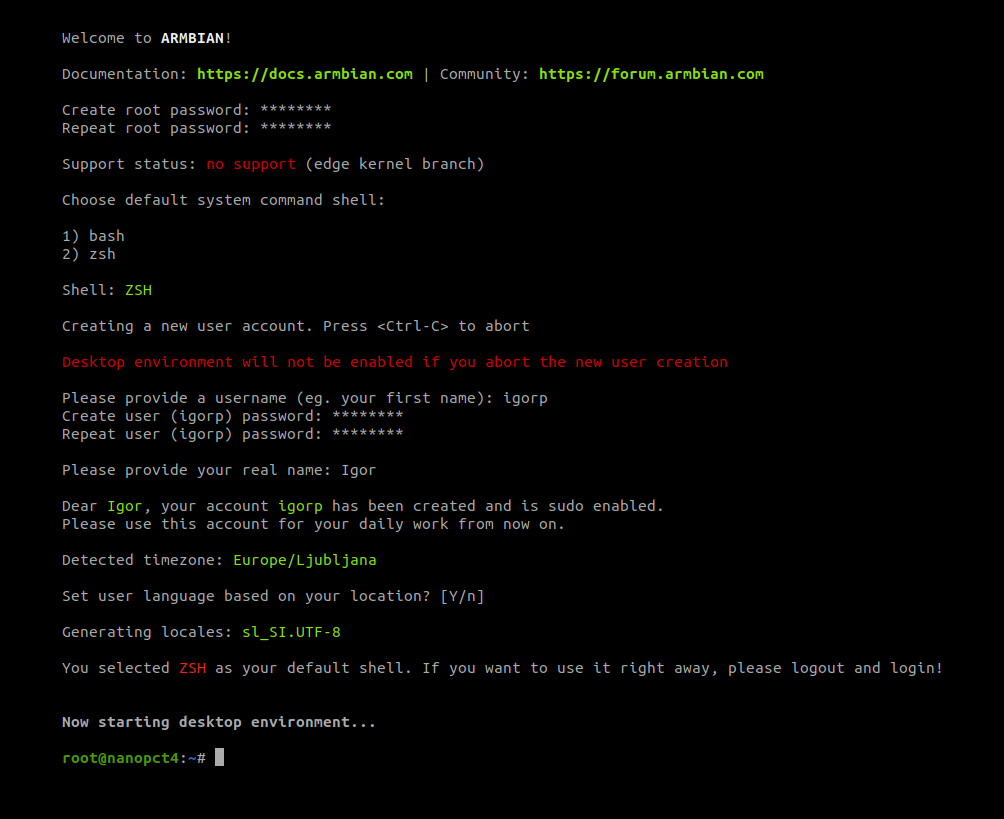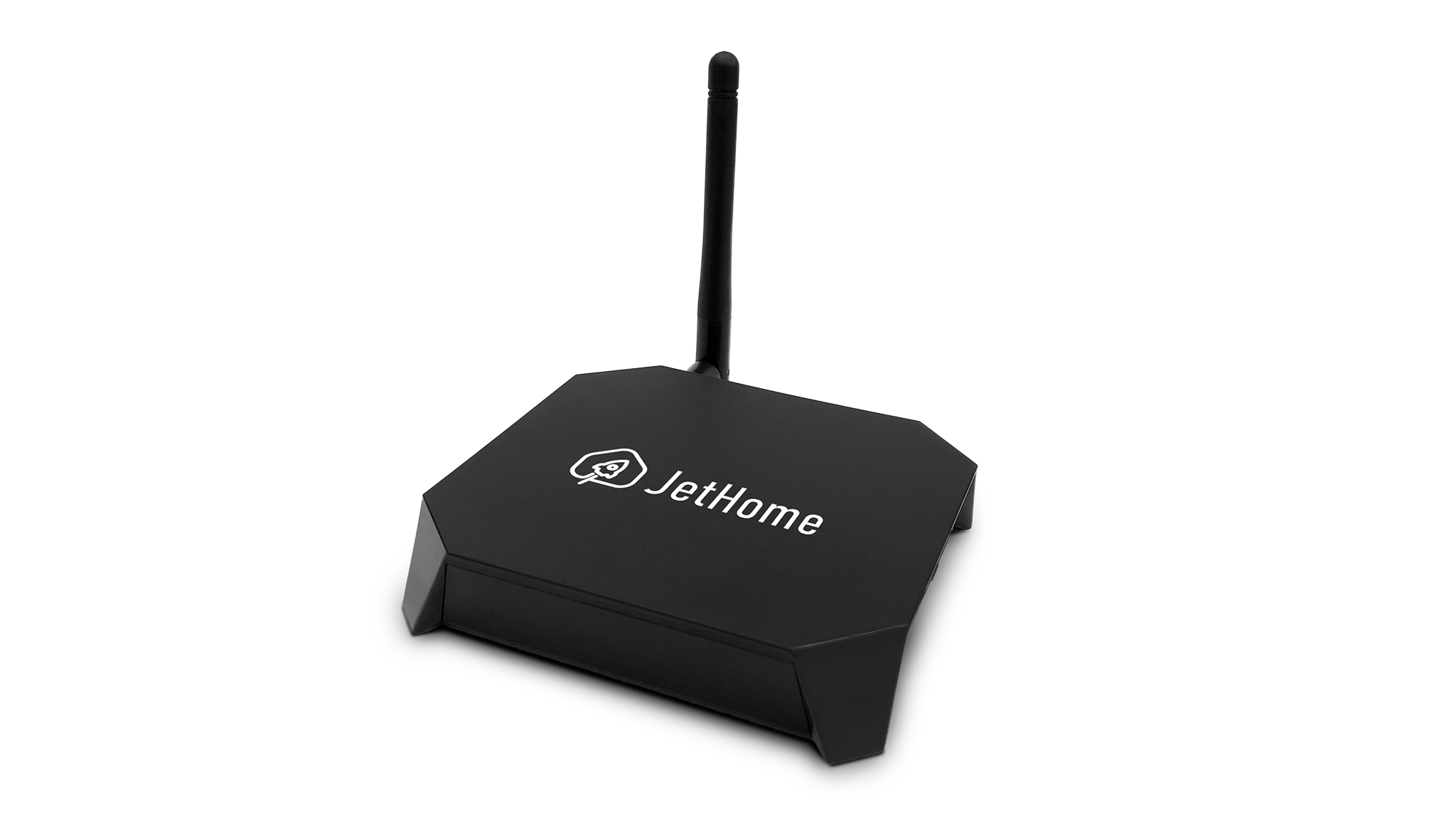In order to boot Armbian from JetHub H1 with pre-flashed OS on eMMC you need USB-USB cable and do:
- Download Amlogic Burning Tool
- Download latest burnable firmware (testing branch)
- Flash!
More instructions on https://wiki.jethome.ru/en/jethub_h1#controller_firmware
Now you can boot Armbian from eMMC.
After you download and boot?
Basic OS configuration is conducted at first boot. You are asked to set a root password, normal user and confirm your, automatically determined, language settings. If your hardware has internal media, you might want to transfer your OS to it. You can also choose to configure your OS first, setup applications, enable services and install to internal media later.
armbian-config
You can select different login shell (ZSH), enable 2FA for your SSH, enable virtual read-only file-system, switch to rolling releases, ... and more. Armbian config tool helps you configure your network (static, dynamic, enabling hotspot). Once you are done configurion your OS, you can proceed to software section. Armbian config provides clean and fast way of installing great selection of popular software titles. If you plan to use your board for running a home automation, file server, ad blocking, downloading media, ... we got you covered.
Different images? Missing features? -> Download SDK Looking for compatible accessories? Want to participate in development?
Minimal/IOT images with Armbian Linux v6.12
Build Date: Feb 24, 2025
| Distro | Variant | Extensions | Torrent | Integrity | Size | |||||
| Minimal / IOT | SHA | ASC | 263 MB | |||||||
| * Minimal images have very small footprint. They come only with essential packages and build-in systemd-networkd. They are optimised for automation and production deployments. | ||||||||||
Specifications
* Specifications differ from hardware revision, model and software support level
FAQs
Simple
BASH or ZSH shell, standard Debian/Ubuntu utilities. Features can be adjusted with menu-driven utility. Login is possible via serial, HDMI or SSH.Universal
Minimal, server or Desktop. We work with XFCE, Gnome and Cinnamon but more is possible to build: Mate, KDE, Budgie, Deepin, i3, ...Light
No bloatware or spyware. Special utilities are completely optional. Suitable for newcomers and professionals.Optimized
Distributed images are optimized for flash media (SD/eMMC/SSD) and compacted to real data size.Fast
Armbian is optimized on kernel and userspace level. ZRAM & ZSWAP support, browser profile memory caching, garbage commit delay.Secure
Security level can be adjusted with the armbian-config. OS is reviewed by professionals within the community.Supported
Maintainers and community have deep understanding how HW work. We are seniors with 30+ years of experience in Linux + embedded Linux.Open
Armbian provides open source build framework to build a distribution of optimised Linux hardware interface for armhf, aarch64 and x86.
dpkg -i linux-image-[branch]-family.deb linux-dtb-[branch]-family.deb. In that process you can enforce many customisation. Support is provided in one of two ways:
- Free support is provided via general project search engine, documentation, community forums or IRC/Discord. Keep in mind this is mostly provided by our awesome community members in a best effort manner and therefore there are no guaranteed solutions.
- For commercial or prioritised assistance:
- book a an hour of professional consultation,
- consider becoming a project partner.
- Reach us out at https://armbian.com/contact,



